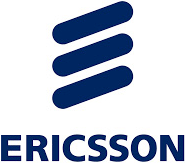How are you today? Find out with Customer Surveys
How are you today? This seems like such a simple question; one that we have all answered thousands of times. But have you ever thought about how you are able to answer this question? When we answer the question “How are you today?” we rely on information stored in our memory about how we were yesterday, last week, and perhaps, even last month or last year. We compare how we were in the past with how we perceive ourselves in the present and we answer the question to a large degree by making this comparison. Thus, if someone were to ask me how I am today and last week I had the flu, I might say “I’m still a little weak but I am doing better.”
As a psychologist, I have lectured on how our memory functions hundreds of times. In order to help my students better understand the importance of memory function in our everyday lives I like to show them a video about a man named Clive Wearing. Clive was a famous conductor and composer in the UK until he suffered a bout of viral encephalitis that damaged a region of the brain known as the hippocampus. This part of the brain is responsible for forming new memories. Because of the extensive damage suffered to the hippocampus and other areas of his brain, Clive Wearing was left with the most severe case of amnesia that I have ever heard of. People with amnesia either have difficulty remembering the past, but easily form new memories (retrograde amnesia, the most common form) or easily remember the past, but are unable to form new memories (anterograde amnesia, a rare form). Clive Wearing has both of these impairments. This means that he does not remember his past, even five minutes ago, and he is unable to form new memories. He lives a moment-by-moment existence, unable to reflect upon the past or project himself into the future. For years Clive has lived in a long-term care facility for patients who have suffered brain injuries. One of the things the staff have learned over the years is not to ask Clive the simple question, “How are you today?” Think about the stress and anxiety such a simple question can cause for someone who has no yesterday, no ten minutes ago, to compare with the here and now. How could such a person answer this question? Quite simply, he cannot.
Now, how does this apply to you, someone who is concerned with the functioning and health of a business? As a decision-maker, you must contemplate the best course of action for your company that will not only be the right decision for today, but also will have a positive impact over the long haul. You must try to anticipate changes in the environment that will influence the needs of the clients you serve and their level of demand for your product or service. You cannot do this effectively without possessing knowledge of the past. Just like we all need to know how we were doing yesterday and last week to know how we are today; in order to know how your company is doing right now, and to understand the changes that need to be made in order to ensure future success, you must be aware of where your company was last quarter, last year, five years ago, etc.
Q: So how can we gain this knowledge? A: The answer is simple, conduct surveys on a regular basis. The answer is simple both in theory and in practice. However, it amazes me how often people do not follow through on simple advice that can prevent a lot of problems in the future. Take for example, medical care. Talk to any physician and he or she will tell you that many patients refuse to follow through with their recommendations whether it is taking a medication regularly, changing their diet, or exercising. The same holds true in mental health care. People will pay money to a therapist to learn how to improve their functioning only to continue to behave the exact same way they did before seeking out treatment. Organizations are no different. I have known of organizations that paid thousands of dollars in consulting fees only to continue on as they always had in the past.
If we know a course of action will work to bring about improvements that benefit us or our company, why do we fail to follow through? Part of the problem is the difficulty of change. Human beings are creatures of habit. For better or worse we have certain ways of doing things and it takes effort to change these habits. The good news is that once we make an effort to adopt a new behavior, it does not take long to establish a new habit, one that can bring about on-going improvement. Once again, organizations are no different. We can implement new ways of doing things that eventually become habits that help us to improve. There is no doubt that conducting employee and customer surveys on a regular basis is a habit that can lead to continuous improvement. Why? Because it helps us to answer the question, “How are you today?”
Sometimes companies conduct surveys, but are not really committed to the process. The company may survey for the first time and then only survey sporadically thereafter, perhaps every three or four years. For another company, the first survey is also the last survey. Other companies are cognizant of the fact that regular surveys lead to continuous improvement, growth, and success and they survey at least once a year. Some companies survey continuously.
Organizational scientists have long been aware of the importance of obtaining information from employees and customers. Recently, Shane C. Blum, Research Manager of Worldwide Hospitality and Tourism Trends at the William F. Harrah College of Hotel Administration at the University of Nevada, conducted a trend analysis of the hospitality industry. Blum identified emerging themes in the industry related to preparing for the future. The top two on the list: employees and customers. Blum argues that an organization cannot begin to prepare for the future until human resource needs are addressed. It is impossible to adequately identify these needs without employee surveys. Blum also warns that it is critical to success to have knowledge of your customers, including their characteristics and perceptions of your product or service. Once again, this knowledge can only be fully obtained via surveys.
Surveying on a regular basis enables companies to answer the question “How are you today?” by providing a dynamic knowledge base with which to compare “today” versus “yesterday”. These comparisons can be further strengthened by benchmarking. In an article published in the International Journal of Contemporary Hospitality Management, Mahmoud M. Yasin and Thomas W. Zimmerer discuss the role of benchmarking in achieving continuous service quality. The authors present a practical framework to promote continuous service quality improvement by comparing your company to others in your industry. Yasin and Zimmerer state that benchmarking enables organizations to innovate and learn as they respond to their competitive environment. They add that “in recent years, benchmarking has become a part of the business lexicon. Since the trend with regard to competitive pressures is expected to continue in the coming years, many companies, both large and small, will be more inclined to employ benchmarking as a part of the continuous improvement process. The potential benefits to be realized by the successful integration and incorporation of benchmarking into the corporate structure and culture relate to survival, profitability, and competitive advantage.”
Let’s look at how one company has utilized regular surveys and benchmarking to achieve continuous improvement. This company in the hospitality and gaming industry has been utilizing the services of the National Business Research Institute (NBRI), a business research firm, to conduct ongoing customer surveys, benchmark their results, and conduct trend analyses of their data. The results of the survey are categorized based on how they compare with the other companies in their industry in the benchmarking database. This categorization places the national average at the 50th percentile and also labels scores by the following:
- Strengths: 75th percentile and above,
- Opportunities: 50th to the 74th percentiles,
- Weaknesses: 25th to the 49th percentiles,
- Threats: 24th percentile and below.
This hospitality and gaming company has been surveying their customers continuously and has also been working diligently to follow through on the areas identified as crucial to customer’s overall satisfaction and intent to return for future business. Their most recent report revealed numerous positive trends in customer perceptions of gaming services and entertainment in the areas of:
- wait time for services;
- friendliness and helpfulness of staff;
- entertainment value; and,
- quality of entertainment.
In each of the seven types of services measured, customer perceptions were anywhere from 7 to 29 percentiles above the national average with the majority scoring in the Strengths category! In addition, this company has seen increases in overall guest satisfaction and intent to return. This hospitality and gaming company plans to continue to survey regularly, act on their survey results, and persist in improving their customers’ perceptions and business success.
If you would like to learn more about how NBRI can help your company develop the necessary knowledge base to answer the question “How are you today?” and experience continuous improvement, contact us now at 800-756-6168.
Cynthia K. S. Reed, Ph.D.
Organizational Psychologist
National Business Research Institute




























 By submitting this form you agree to our
By submitting this form you agree to our